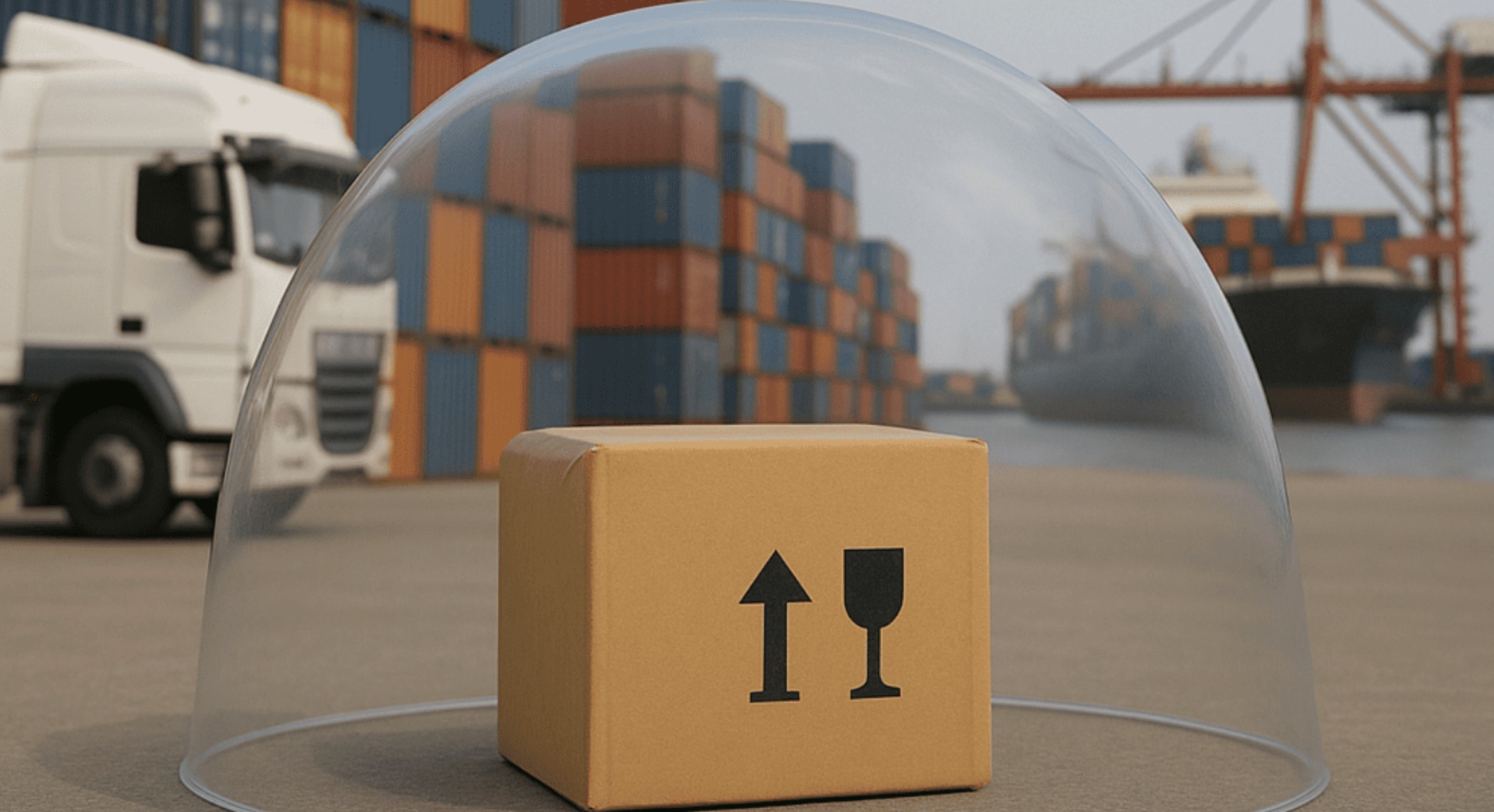———————————————
Global trade is booming today, especially when it comes to maritime shipping from China. However, along with the growth in shipment volumes, the complexity of delivery also increases. In 2025, cargo insurance faces a number of new challenges: wars, conflicts, global climate catastrophes, and escalating geopolitical tensions. In this dynamic environment, companies engaged in international logistics, including Dragon Logistics, are forced not only to adapt routes but also to reconsider their approaches to insurance coverage.
The Red Sea, a key route for goods from China, must be avoided due to Houthi attacks, and “war-risk” insurance premiums have skyrocketed to record levels. This forces businesses to seek alternative routes, while insurance costs remain a critical factor in profitability. Experienced partners, in turn, help businesses account for all risks in advance – from geopolitical to climatic – and build efficient, secure supply chains.
Digitalization: a lifesaving trend
Innovation has become a lifeline. Insurtech startups like Parsyl offer insurance with IoT sensors that collect real-time data on temperature, humidity, and cargo movement. This is not just about a policy but about proactive risk alerts, reducing claims, and more accurate situation assessment. In a world where delays are costly, this is a real revolution.
Similarly, AI-based analytical models, data from weather services, routing, risk assessments, and geopolitical conditions form the basis of new insurance terms.
From climate threats to cyber risks
In 2025, cargo insurance in international logistics is undergoing major transformation. Climate change is no longer a distant concern – it is a reality affecting shipments every day. Major delays and cargo damage are often caused by:
- flooded ports;
- storms and hurricanes;
- droughts that halt river shipping;
- other factors.
In response, insurers are revising policies, introducing new coverage conditions, and factoring climate risks into pricing.
Cybersecurity is another critical aspect. Logistics increasingly relies on digital tools: automated management systems, GPS tracking, and electronic documentation. At the same time, the risk of cyberattacks grows: hacks of port systems, manipulation of cargo data, or its movement. Modern insurance products now include cyber risk coverage – protection against cyber incidents that can paralyze the supply chain.
Geopolitical chaos
Rising geopolitical instability, conflicts in different regions, and escalating trade sanctions have significantly complicated international shipping. This chaos forces insurers to revise their approaches to risk assessment and insurance product development.
Geopolitical tension increases the likelihood of delays, port blockades, and even cargo loss due to military actions or sanctions. In 2025, insurers must consider these factors when determining premiums and coverage conditions. Traditional policies are becoming less relevant, replaced by customized solutions that account for specific risks and regional characteristics.
Demand is growing for comprehensive products that include protection against political events as well as cyberattacks, which often accompany conflicts. At the same time, technologies such as AI and real-time data analytics help better predict risks and respond more quickly to changes.
Business advice
To minimize risks and operate effectively, companies should consider the following key recommendations:
- Real-time risk assessment: Use modern digital platforms that analyze threats and risks promptly, allowing quick response to changes in routes or port situations.
- Diversification of routes and suppliers: Distribute cargo among different suppliers to reduce the impact of local crises.
- Flexible insurance products: Choose policies that can be adapted to new conditions and supplemented with additional options.
- Implementation of technology: Use IoT sensors and GPS tracking to monitor cargo and reduce the likelihood of damage.
- Strengthening cybersecurity: Protect information systems, as cyberattacks can cause losses and supply chain disruptions.
- Continuous learning and strategy updates: Monitor global trends, implement new practices, and prepare for unexpected challenges.
- Close cooperation with reliable logistics and insurance partners: Work with experienced and reputable companies offering comprehensive solutions.
Changes in insurance include a shift to flexible platforms that automatically analyze risks in real time, create customized policy conditions, and accelerate claims processing. In this complex international shipping ecosystem, logistics companies, including Dragon Logistics, play a key role by implementing innovative solutions for effective risk management.
Thus, new threats not only complicate shipping but also drive a revolution in cargo insurance, where adaptability, technology, and the ability to anticipate worst-case scenarios before they occur become paramount.
